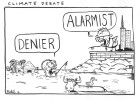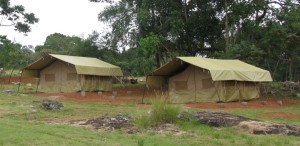“Americans Fall into Two Basic Camps.” (about climate change, Part I)

On good days, I’m even a bit curious about “climate-deniers,” as they’re called in some corners. Self: How can they think that way? Kinda amazing.
Other days I feel frustrated because from what I’ve learned thus far on the matter of climate in our times, there’s much that needs addressing more comprehensively and successfully by a consensus of people and nations around the globe. Self: They need to get it–right now. Darn the short-term cost. Longer term is downright scary, and likely fantastically more expensive (think Superstorm Sandy with some frequency).


The post title comes from the opinion of Dan Kahan, Yale University law professor, who conducted a large study of more than 1,500 Americans more than a year ago that continues to draw strong interest among academicians, scientists and journalists alike.
Washington Post columnist Joel Achenbach wrote about this in his recent piece called: “Why Americans are so dubious about science.”
What are the basic camps? There are those who are more of the “egalitarian” and “communitarian” mindset, and those who are more of the”hierarchical” and “individualistic” mindset. I’ll call ’em Group A and Group B.
Group A folks are generally suspicious of industry and are apt to think government regulation may be needed because industry is up to something that might be considered dangerous. Group B folks generally respect industry leaders and don’t take kindly as to government interference in what industry wants to produce or do.
Group A, as Kahan sees them, are likely “to see the risks of climate change” while Group B typically reject such risks because there’s a good chance that accepting them would lead to some kind of tax or regulation to limit emissions.
Kahan claims that climate change has been a defining issue that makes for these distinctly different groups. “When we argue about climate change, he says, we’re actually arguing about who we are; what our crowd is. IOW, people like you don’t believe it while people like me do. Or, vice versa.
Geophysicist Marcia McNutt, current editor of Science magazine, puts it another way: “Science is not a body of facts. [It’s] a method for deciding whether what we choose to believe has a basis in the laws of nature or not.” McNutt says: “We’re all in high school. We’ve never left high school. People still have a need to fit in, and that need to fit in is so strong that local values and local opinions are always trumping science. And they will continue to trump science, especially when there is no clear downside to ignoring science.” Herd instinct, IMO. (I remember it from my growing-up days and still see it abounding.)
Who or what programming do you regularly listen to on the radio, or on TV, for instance? These may be place and mindset; high school and herd instinct. And, in a selfie, isn’t it harder to hang out with folks who are Group A types than those who fit neatly into your B Group?
Kahan and McNutt are helpful. I’m a Group A type. No kiddin’.
McNutt’s statement screws it down more: “…a basis in the laws of nature or not.” Well, don’t you hope what you believe about climate change, for instance, has a basis in the laws of nature? Or, let’s call it Question A: “What laws of nature support your view on climate change?
Achenbach states: “Scientists rarely proclaim an absolute truth or an absolute certainty. Uncertainty is inevitable at the frontiers of knowledge.”
Is this assertion helpful in answering Question A?